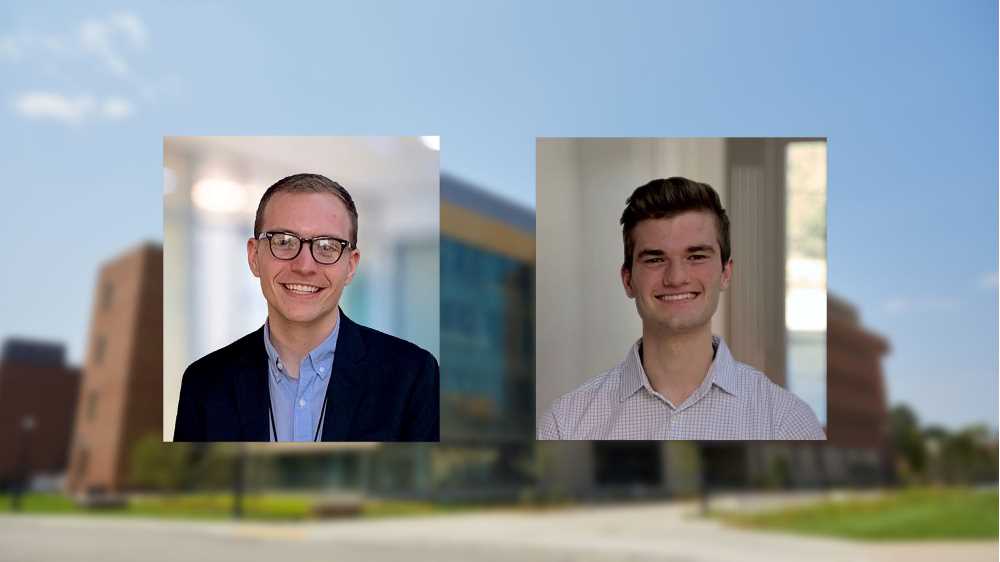
Nico Lang and Cullen Schull, both May 2021 graduates, found success adapting their biochemistry research amid COVID-19.
A pair of UW-La Crosse biochemistry students didn’t let COVID-19 stand in the way of their research.
Cullen Schull and Nico Lang, who each graduated with a bachelor’s degree in biochemistry in May, had spent the past couple years researching “greener” routes of synthesis for high-purity curcumin, a powdery orange chemical produced by certain plants. Curcumin, the active ingredient in turmeric, has been used as a cooking ingredient and alternative medicine for centuries but also has numerous biological applications as a “wonder drug.”
Lang had been working on the synthesis and isolation of curcumin compounds using a green methodology and microwave energy. Typical industrial synthesis and isolation procedures are based on a report from the 1960s, taking a greater toll on the environment.
Unable to work in the lab due to COVID-19, Lang demonstrated the effectiveness of his greener approach using recently developed software — the Environmental Assessment Tool for Organic Synthesis. He also completed a bibliography on the synthesis of curcumin and similar chemicals, placing his green methodology in perspective.
Schull had been working on a combinatory study to develop a simple and versatile method to obtain curcuminoids (analogues of curcumin) using a blend of synthetic and computational modeling.
From a biomedical standpoint, curcuminoids are shown to be even more effective than curcumin. However, a lack of knowledge about curcuminoid synthesis has resulted in a limited commercial availability of curcuminoids, as well as high prices.
Schull’s synthetic work was put on hold during COVID-19. Instead, he used molecular modeling to better understand the mechanism of curcuminoid synthesis, gaining valuable data and experience conducting online research.
This summer, Schull is finishing his project and hoping to publish his manuscript.
His work helped earn a WiSys Spark grant, which was funded for the spring 2021 semester and summer 2021.
“It is particularly remarkable that these two students felt the substantial impact of COVID-19 on their research but were able to use the forced online transition as an opportunity to take their research to a new level,” says Valeria Stepanova, an assistant professor of chemistry and biochemistry and the students’ research advisor.
Lang has been accepted into the University of Utah’s graduate chemistry program. Schull plans to pursue a doctorate in organic chemistry at Northwestern University.
